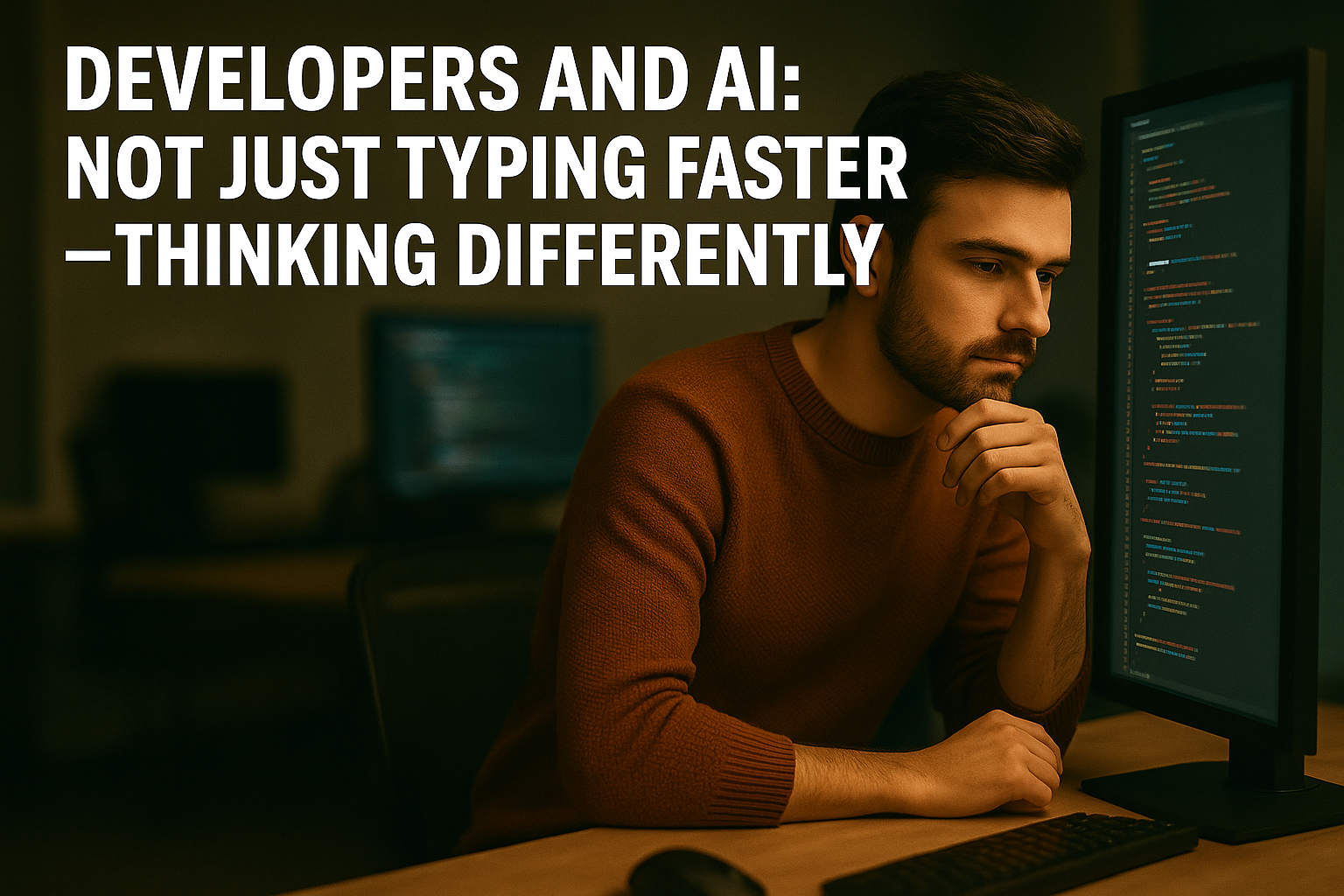Something has definitely shifted in how code gets written lately. And no, it’s not just about faster autocomplete. Those AI co-pilots that quietly showed up in IDEs a year or two ago? They’re now right in the middle of the dev process — suggesting, debugging, even nudging developers toward cleaner architecture. And it’s starting to feel less like magic, more like… routine.
The question isn’t “should we use them?” anymore. It’s “how far do we let them go?”
Co-pilots used to just guess what you were typing
At first, they were kind of cute — filling in boilerplate, completing lines, finishing loops. Nothing earth-shattering. But the new generation? They’re more like coding companions. They handle logic scaffolding. They turn vague comments into real code. They even throw in ideas developers didn’t ask for, sometimes useful, sometimes a little off — like a junior dev who learned too fast.
What’s striking is how natural it’s becoming to describe what you want in plain language — and just watch it unfold into functional code.
Workflows aren’t just faster. They’re different.
Teams that lean into AI tooling are starting to rethink how development flows. Instead of building everything from scratch, people describe the outcome — and the AI helps bridge the gap. It doesn’t mean humans write less. But they write smarter.
Code reviews, test generation, quick prototypes — all of that is getting infused with AI context. Engineers spend less time Googling syntax and more time refining solutions. You can almost feel the shift in how people approach complexity: fewer distractions, tighter feedback loops.
But don’t believe the hype — it’s not perfect
There’s still a fair bit of clean-up involved. AI doesn’t always get the context right. It hallucinates. It forgets dependencies. And it definitely isn’t going to write your next production API unsupervised. Smart teams know this and treat co-pilots as exactly that — assistants, not authorities.
Governance, testing, version control — those parts of the stack still matter. Maybe even more now. Because if the AI gets overconfident and no one notices, well… you’re debugging ghost code.
What happens next?
We’re heading toward a model where AI doesn’t just help write code. It helps design systems, spot risks, explain unfamiliar logic, and surface what you might have missed. That’s not future talk — it’s already happening in early tools.
And while not every dev is thrilled by the pace of change, most agree on one thing: AI isn’t going anywhere. The job isn’t disappearing, but the way people do the job is shifting. Quietly, steadily, line by line.
